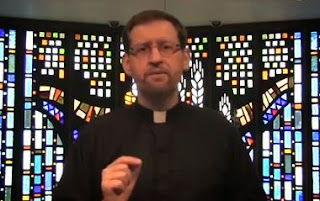 Dr. John Bergsma talk about what does it mean to be a leader according to Jesus Christ our Lord? We are going to try to look at what we can learn from scripture, for meditating the Christ examples on the gospels on leadership, to know how to get an “F” in leadership.
Dr. John Bergsma talk about what does it mean to be a leader according to Jesus Christ our Lord? We are going to try to look at what we can learn from scripture, for meditating the Christ examples on the gospels on leadership, to know how to get an “F” in leadership. Dr. John Bergsma is an Associate Professor of Theology at Franciscan University of Steubenville, delivers his talk entitled "How to Get an 'F' in Leadership".
John 15:5-8 I am the vine, ye are the branches: He that abideth in me, and I in him, the same bringeth forth much fruit: for without me ye can do nothing. (6) If a man abide not in me, he is cast forth as a branch, and is withered; and men gather them, and cast them into the fire, and they are burned. (7) If ye abide in me, and my words abide in you, ye shall ask what ye will, and it shall be done unto you. (8) Herein is my Father glorified, that ye bear much fruit; so shall ye be my disciples.





